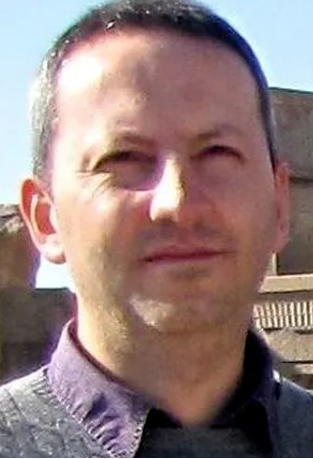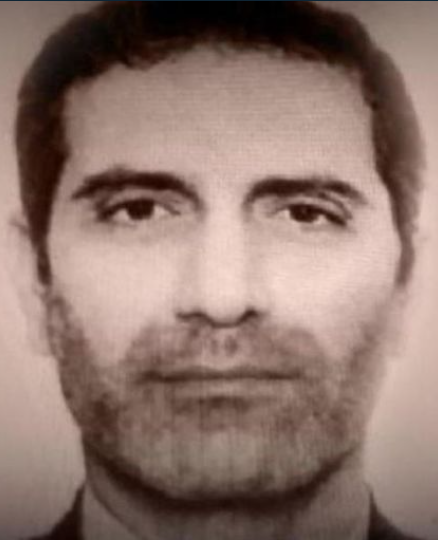July 29, 2022

A former Iranian prosecutor has been sentenced to life imprisonment by a Swedish court for his role in the mass execution of regime opponents in 1988. The Islamic Republic has challenged Sweden by arresting a Swede visiting Iran.
The Stockholm District Court said Hamid Noury took part in major atrocities in July and August 1988 while working as an assistant to the deputy prosecutor at Gohardasht Prison outside Karaj.
A life sentence in Sweden generally means a minimum of 20 to 25 years in prison, which would mean the 61-year-old Noury could regain his freedom in his eighties.
The court said Noury participated “in the executions of many political prisoners in Iran in the summer of 1988.”
The acts were deemed as a serious crime against international law, the court ruled.

The court concluded that Ayatollah Ruhollah Khomeini had issued an execution order for all prisoners in the country who sympathized with and remained loyal to the Iranian opposition group Mojahedin-e Khalq.
Due to that order, a large number of prisoners were executed in the Gohardasht Prison between July 30 and August 16, 1988, the Swedish prosecutors said.
Judge Tomas Zander said Noury claimed the evidence against him had been “fabricated” by the Mojahedin-e Khalq, which “wrongfully accused him of participating in a fabricated course of events for political gains.”
“However, nothing substantial has emerged which gives the court reason to question the investigation’s reliability and robustness,” Judge Zander ruled.
Defense lawyers Thomas Soderqvist and Daniel Marcus said they would appeal the verdict.
On July 30, Iran’s Intelligence Ministry ssaid it had arrested a Swede visiting Iran on espionage charges.
It did not give his name, age, gender, nor indicate if he was a Swedish-Iranian or a natural-born Swede. It said he came under suspicion because he had visited Iran multiple times after first visiting Isarel.
It didn’t say when he or she was arrested, but Sweden said it knew of a Swedish male being arrested in May.
Regarding the court decision on Noury, Balkees Jarrah, interim international justice director at Human Rights Watch, said, “The ruling sends a message to the most senior Iranian officials implicated in these crimes that they can’t remain beyond the reach of justice forever.”
Amnesty International issued a statement that said roughly the same thing.
But it also sent a warning to all Swedes that Iran is not safe for them.
Javaid Rehman, the UN special rapporteur on human rights in Iran, “The process and verdict in Sweden constitute a landmark and important leap forward in the pursuit of truth and justice for a dark chapter in Iranian history. It is also a clear signal that denial, despite substantive evidence, and impunity can no longer be tolerated.” He then added: “I urge other states to take on similar investigations and prosecutions of serious human rights violations in Iran using principles of universal jurisdiction.”
An online platform, MizanPlus, which belongs to Iran’s Judiciary, quoted Noury’s son Majid as saying, “The Swedish court was not judicial at all; it was political.”
The official Mizan news agency called the sentence “illegal, unfair and without solid evidence” and described Sweden as a “paradise for terrorists.”
In Tehran, Foreign Ministry spokesman Nasser Kanaani strongly condemned the sentence.
“For the Islamic Republic of Iran, it is absolutely certain that the case of Mr. Hamid Noury was only an excuse for a political action without any real citations and legal validity,” he said, adding that Iran “holds Sweden responsible for the damages caused to bilateral relations.”
Noury was arrested in November 2019 when he arrived in Stockholm and has been in custody since then. Swedish news agency TT said he was lured to Sweden by Iranians living there, believing he would go sightseeing, meet women and attend parties.
Noury was tried under the principal of “universal jurisdiction,” which most Western countries have adopted, which allows their courts to try people for major criminal acts in other countries that are ignored by those countries. The United States has adopted universal jurisdiction—but only when the victim is an American citizen.
Hadi Ghaemi, executive director of the Center for Human Rights in Iran (CHRI), called the verdict “historic” and commented, “For the first time in 43 years, since the inception of the Islamic Republic, an Iranian official has been held accountable for mass atrocities.
“Unlike thousands of political prisoners, who were executed without due process based on their religious and political beliefs, in 1988, Hamid was tried in a democratic country through a fair and lengthy judicial process that granted him every avenue to prepare a thorough defense.”
The Islamic Republic didn’t see it that way, however. Foreign Ministry spokesman Kanaani said, “What can be read between the lines of today’s announcement of the ruling is that Sweden’s judiciary system is practically supporting and promoting terrorism instead of being accountable to the Iranian people for allowing a terrorist cult to be active in the country and for violating its international responsibility to indiscriminately fight terrorism.
“It is crystal clear to the Islamic Republic of Iran that the case of Mr. Noury has just been an excuse for a political measure and is devoid of any genuine proof and lacks any legal basis,” he said.
A major issue now is what the Islamic Republic will do with Ahmad-Reza Djalali, a Swedish-Iranian dual national arrested by Iran in 2016, three years before Noury was nabbed. Djalali was subsequently sentenced to death on espionage charges. But the regime has not executed Djalali. It is assumed the regime will continue to hold him in an effort to trade him for Noury.




















